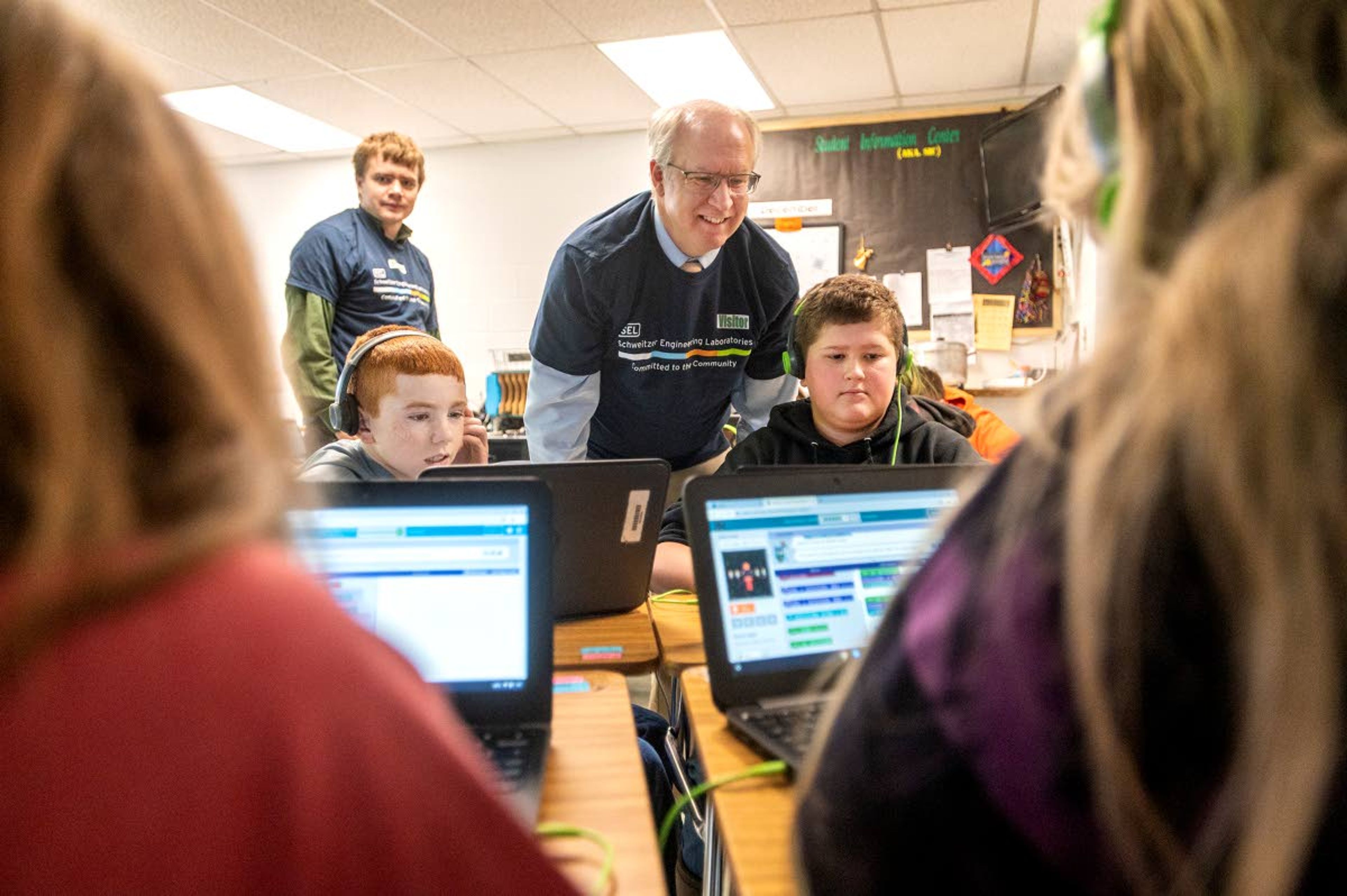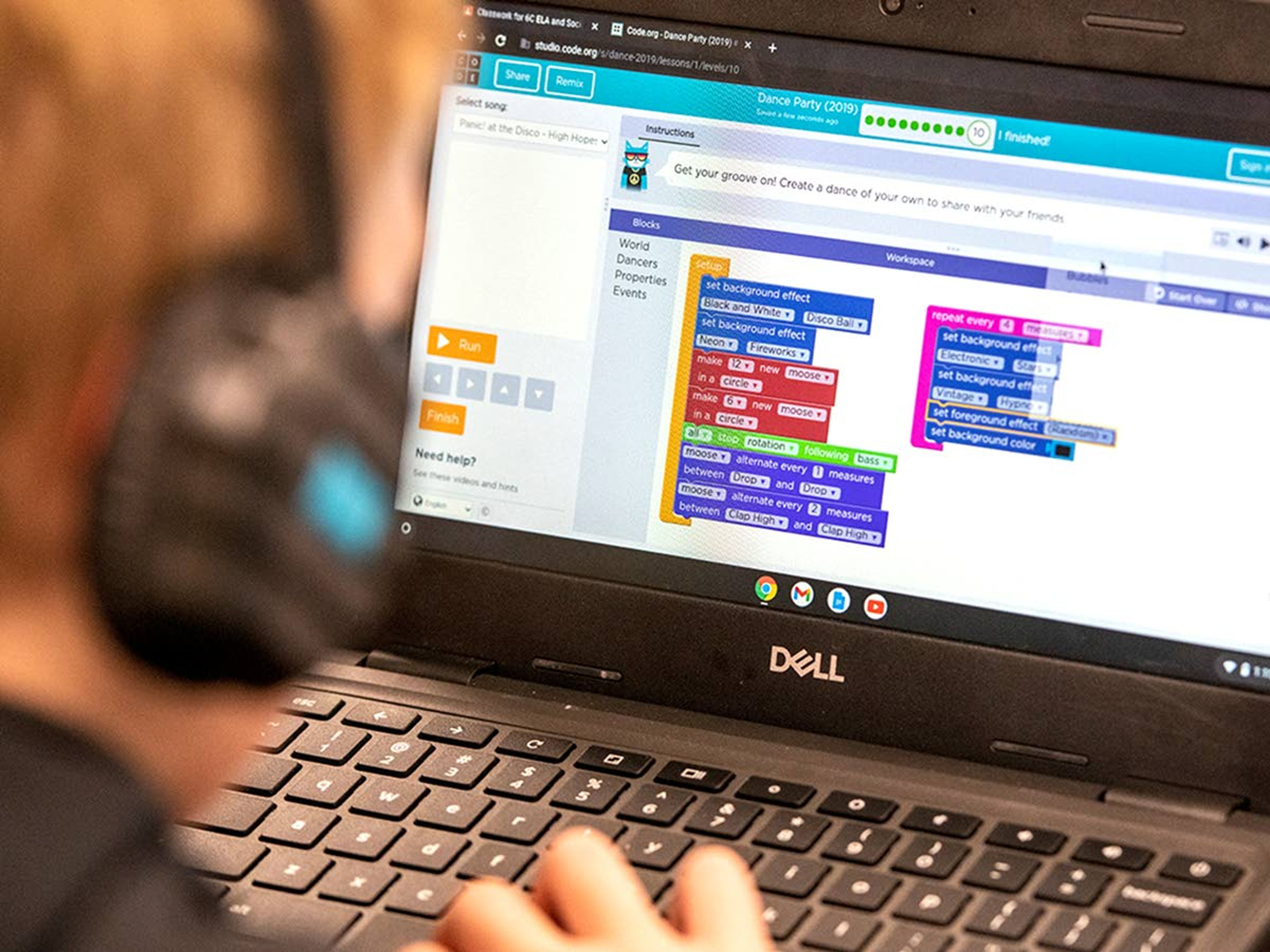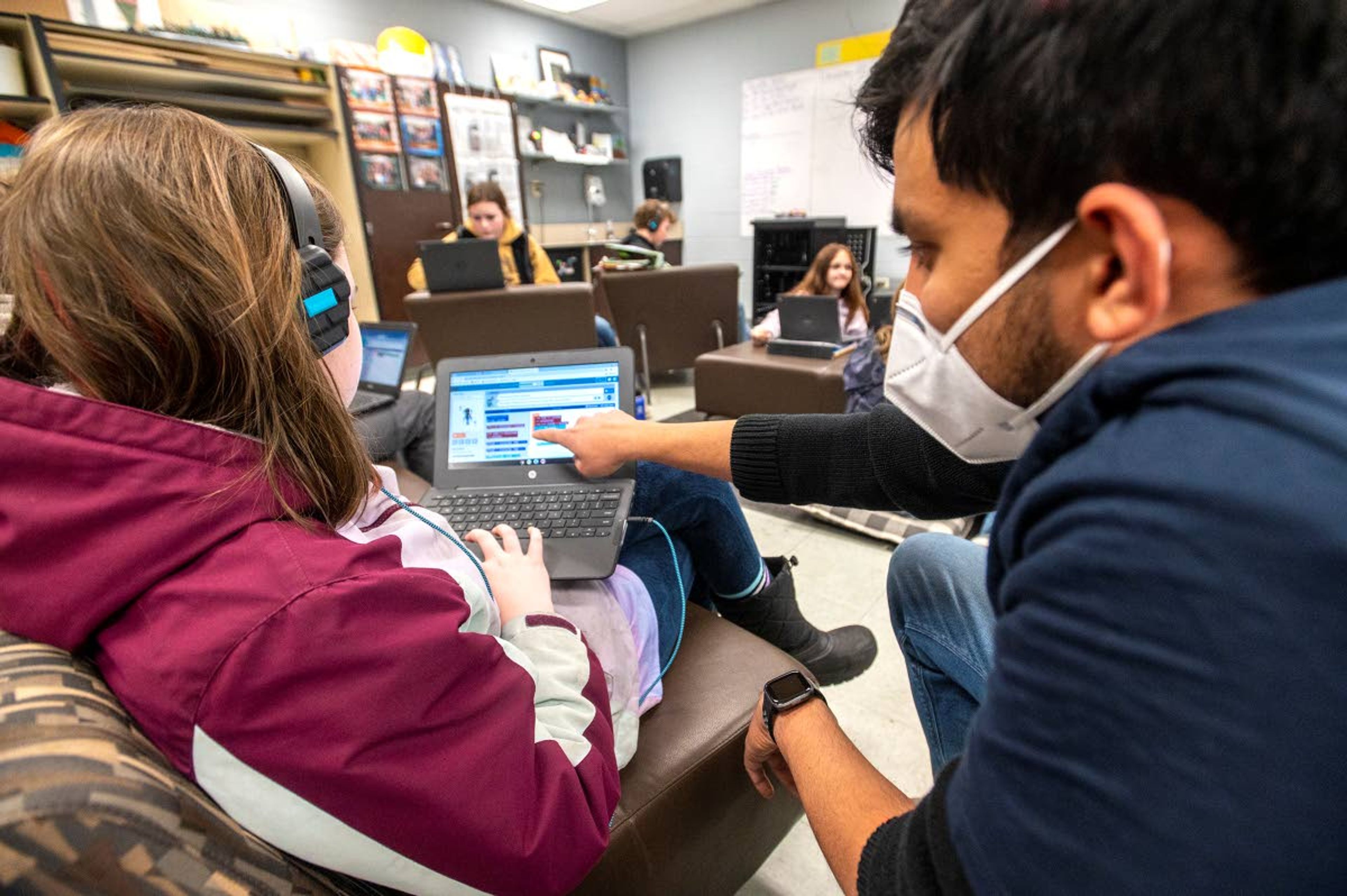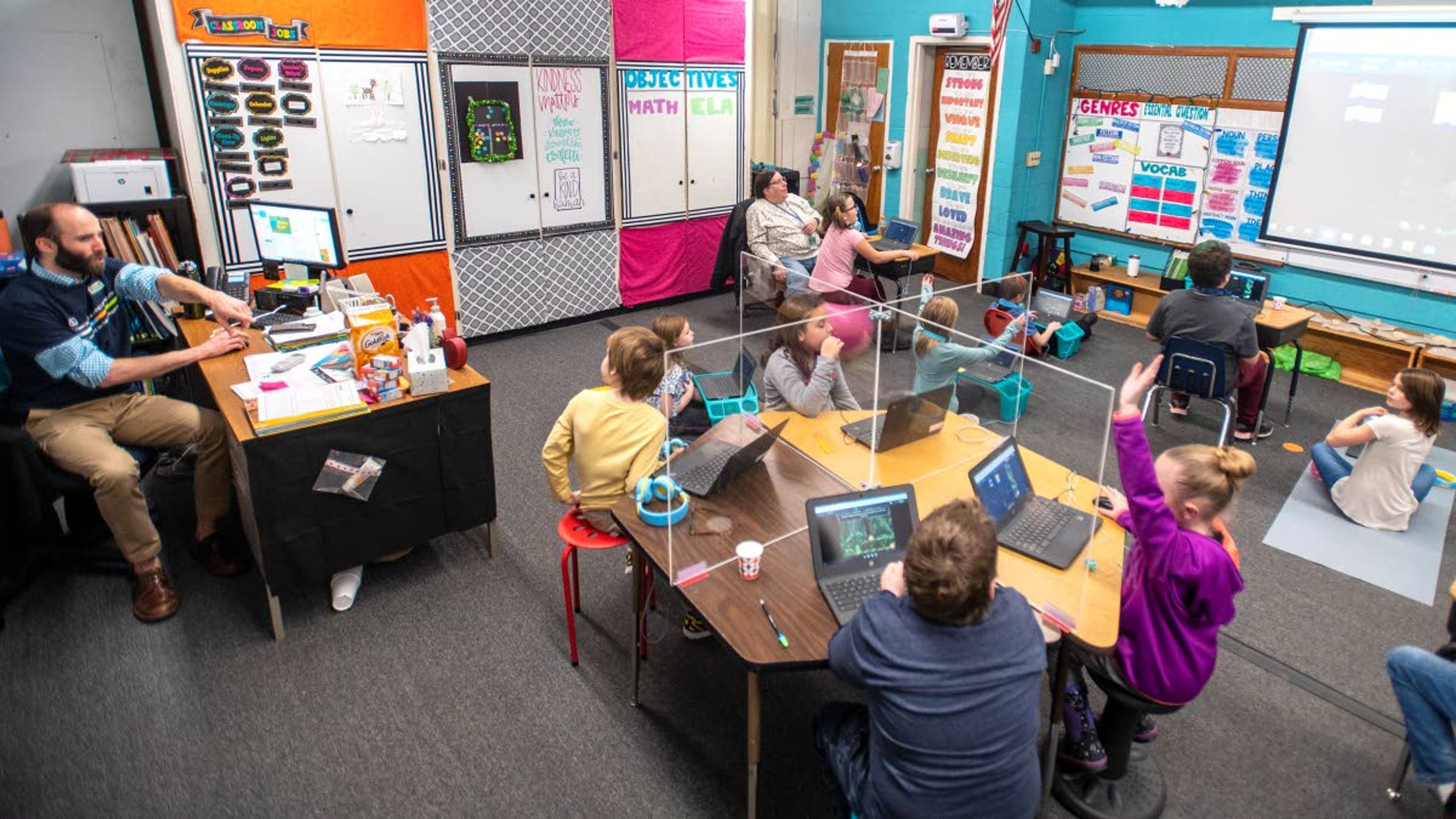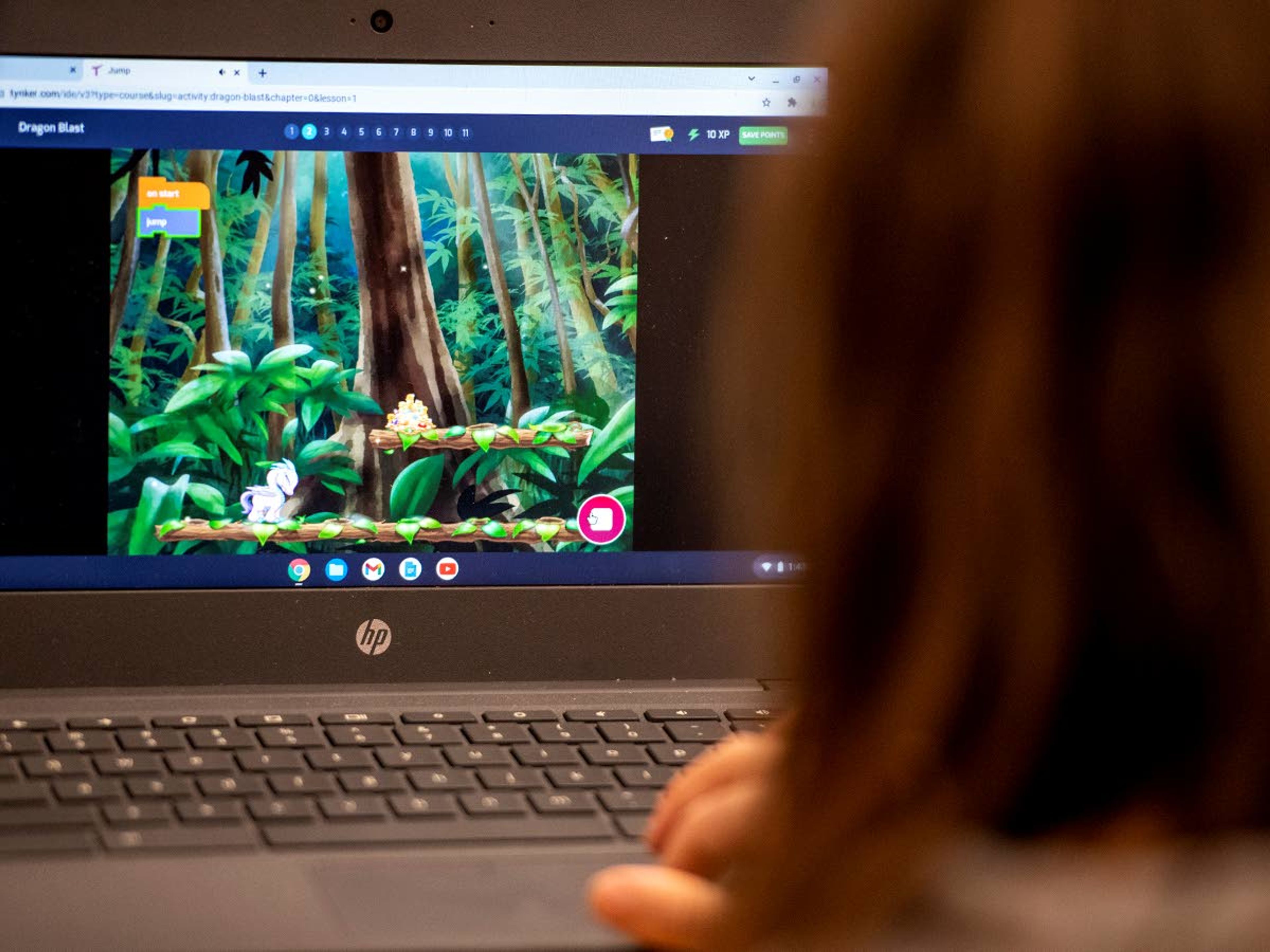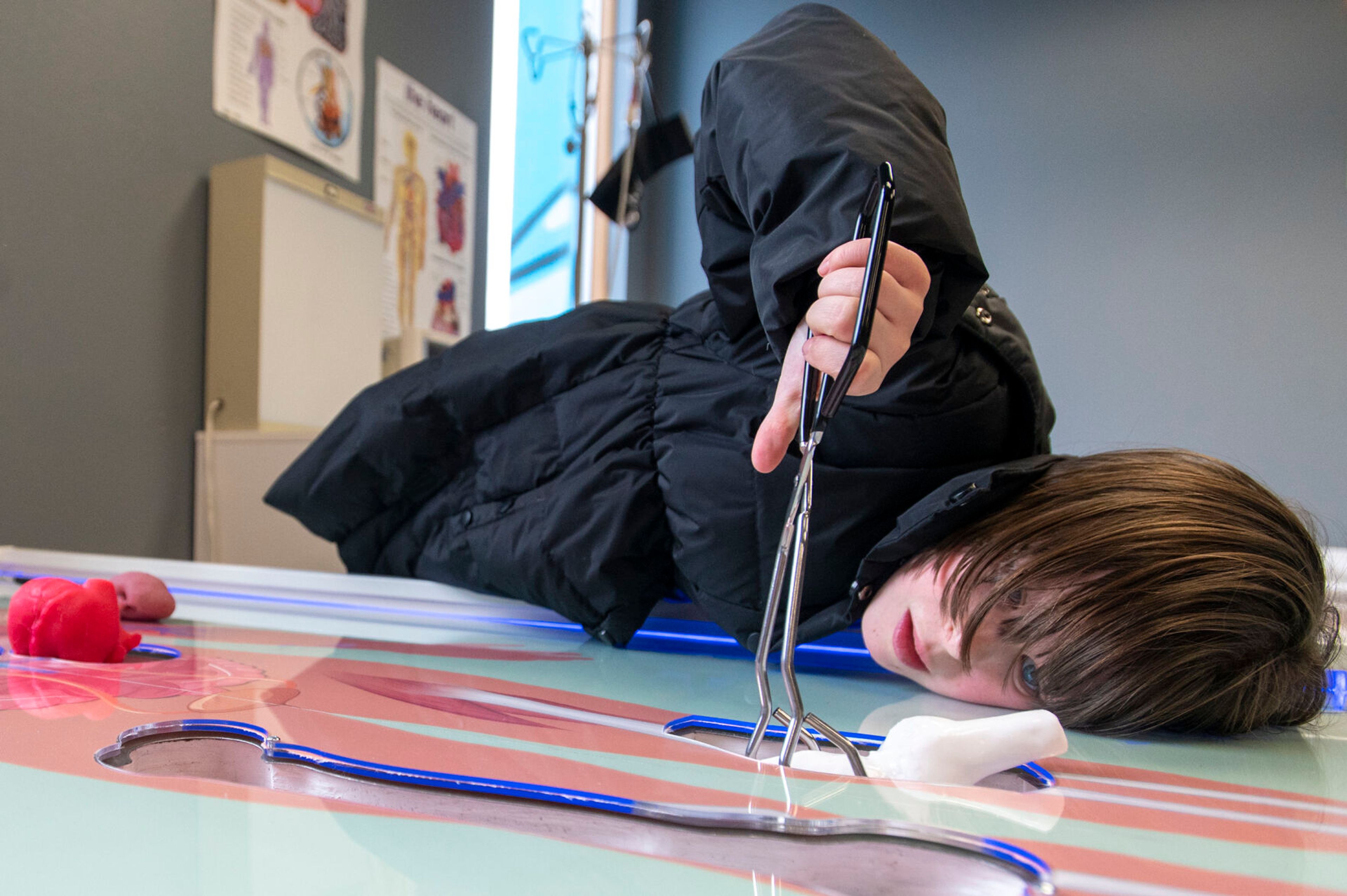‘Hour of Code’ for Potlatch Elementary
Software engineers at Schweitzer promote coding with local first through sixth graders as part of global initiative
Potlatch Elementary School students learned how to code Friday with guidance from 10 software engineers at Schweitzer Engineering Laboratories.
The event, organized through an outreach program at Schweitzer, was part of a global initiative called “Hour of Code” designed to introduce kids to computer science with one-hour coding activities.
John Cassleman, K-12 outreach manager at Schweitzer, says the need for computer programmers is only growing.
“It’s like mathematics or English,” Cassleman said. “We start those at a young age because they’re vital to how we operate in society —and likewise, coding will continue to be vital. There are so many careers that coding feeds into, whether it’s software engineering, cybersecurity or web development.”
Friday’s event was the first time Schweitzer facilitated coding activities for an entire school. The engineers worked in rotations with 230 students in first through sixth grade with the hopes of exposing them to different career possibilities associated with computer science.
Potlatch Elementary School Principal Jill Diamond, said the lessons provide an opportunity for students to learn about a subject that may initially seem abstract, but helps to build problem solving skills with broad applications.
“Schweitzer has offered so many resources to make this seamless and successful,” Diamond said. “Problem solving on its own is a helpful skill because it elevates the idea of guess-and-check into something more systematic.”
The students opened their laptops and put on headphones to participate in the activities. One of the games, called ‘Dance Party,’ offered a more complex series of actions to program than the rest.
“There’s a workspace where they input these different blocks that tell the game what to do and then they see how it translates to action on the screen,” Shawn Jordan, lead software engineer at Schweitzer, said. “It starts out with just one action and builds from there.”
Kaylea Brown, a fourth-grade student at the school, said the games were different than anything she was used to.
“I haven’t played any coding games before,” Brown said. “It was cool learning how to move the characters around.”
The coding activities are designed to evoke problem solving skills, according to Cassleman. Kids might run into frustrations, but they’re encouraged to work through it.
“Students internalize a lot about their own capabilities at an early age,” he said. “Having this belief that they can code will ideally persist throughout their educational experiences. That’s one reason why I think teaching it early is so important.”
Computer science is more than being online or on a device, he said. It’s a framework for thinking and breaking down problems to find a solution.
Brown said the time with the engineers flew by because she was having so much fun.
“I started putting stuff in that I thought would work and then I’d push play,” she said. “If it didn’t work, I’d look at where it stopped and put the thing in to make it work there.”
Schweitzer software engineer Bryce Hart walked around the classroom to answer questions and make sure no one was struggling.
Hart told the students video games are what first got him interested in computer science. After the activities, he encouraged them to play the coding games at home in their free time.
“The kids have been really interested so far,” he said. “We did the ‘Dragon Blast’ game in our group and some of the kids got to the last level and beat the whole thing.”
When he asked whether they had any questions, more than a few students asked when the engineers would come back and do the lessons again.
Palermo can be reached at apalermo@dnews.com or on Twitter @apalermotweets.
